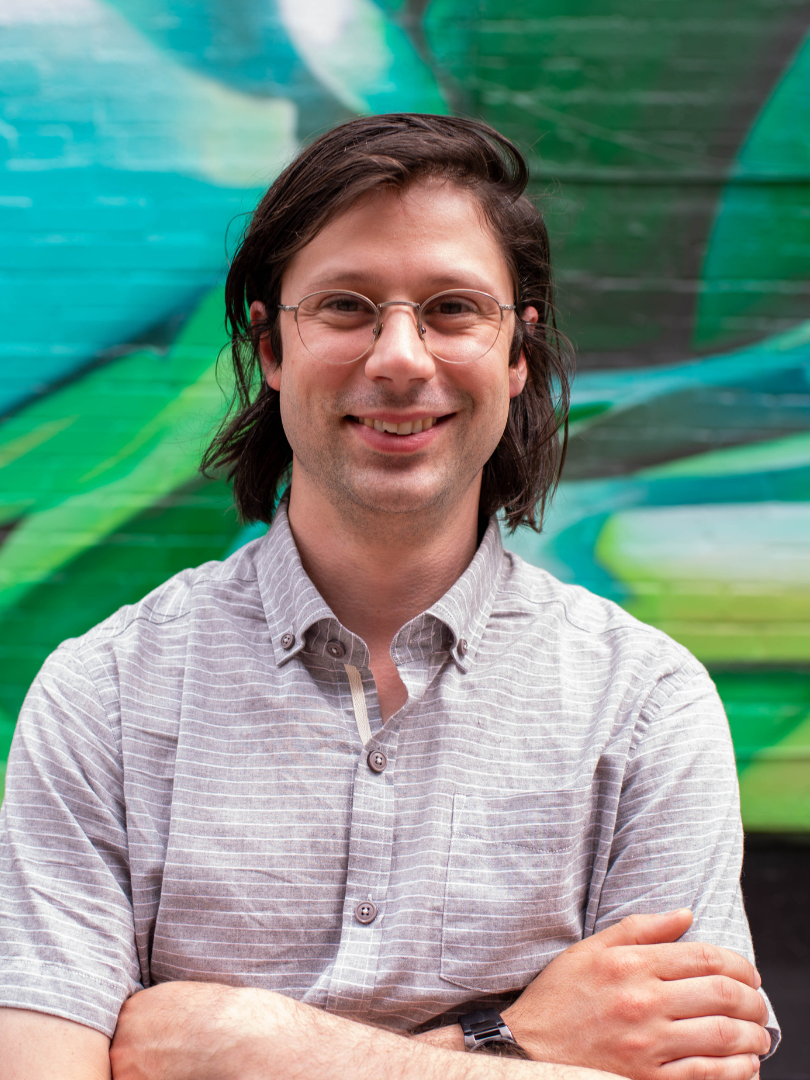
Aaron Vansinjtan
Born in Belgium, Aaron lived in Central America, South Africa, and the United States before putting down his roots in Montreal in 2008. His interest in food justice began when he started working and volunteering at community kitchens and food banks in 2010. In 2022, he received a PhD from Birkbeck College, University of London, for which he studied the intersection of food justice and gentrification in Montreal and Hanoi. Consultant for over a decade, Aaron has done research for political parties, non-profits, and research institutes. Co-author of the book The Future Is Degrowth, Aaron is currently working Policy Manager at FSC.
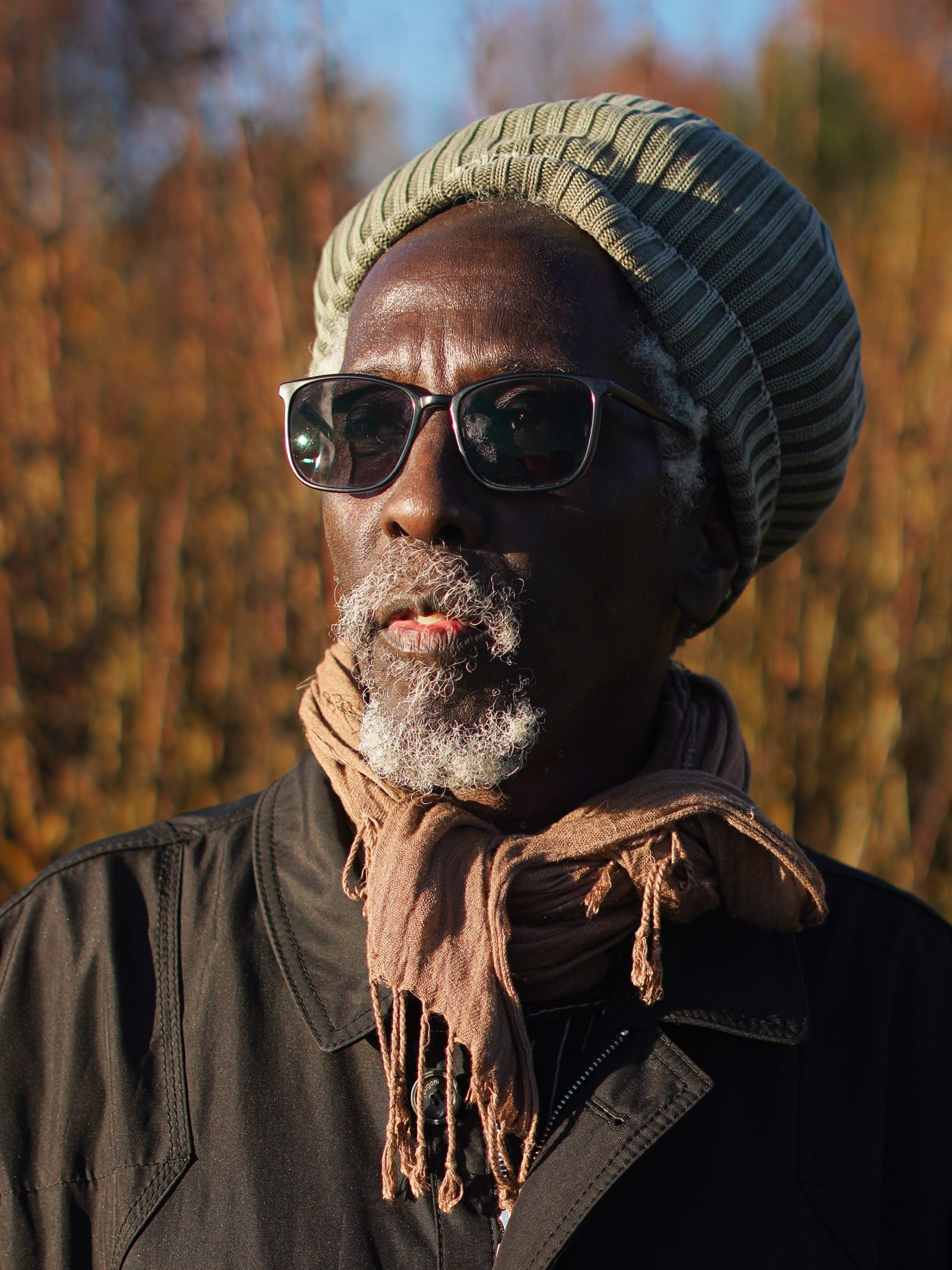
Anan Xola Lololi
Anan Xola Lololi is a Food Sovereignty & Food Justice advocate. Anan is the interim Executive Director of the Black Food Sovereignty Alliance and one of the founders of the Afri-Can FoodBasket (AFB), a non-profit organization that began in 1995 in Toronto. He is a Food Policy Fellow in the School of Public Policy and Democratic Innovation (“SPPDI”) at the Faculty of Arts at Toronto Metropolitan University. He is the former Executive Director of AFB (1995-2021) for 26 years, promoting Community Food Security, Food Sovereignty, and Food Justice in Toronto, North America, and the Caribbean. From 2019 to 2024, Anan has managed Black Food Sovereignty Toronto, an AFB program. He is a food sovereignty community consultant with the City of Toronto’s Confronting Anti-Black Racism unit (CABR).
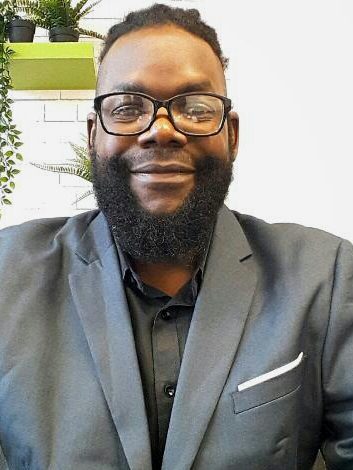
Anthony Musiwa
Growing up in a small, resource-limited community, Anthony saw how families would support each other by sharing basic necessities, knowledge, skills, etc., to thrive. He always wondered, if people can achieve all that, how can we bring them together to build their social capital so they can organize and demand from their political authorities the things that are necessary for their development? These and other similar experiences motivate Anthony to wake up every day to work with families and communities in Canada and Zimbabwe to strengthen their capacities to access basic services and advocate for policy improvements. Currently, Anthony is Senior Policy Advisor in the Poverty Action Unit at Community Food Centres Canada, Banting Postdoctoral Fellow in the Department of Health Services Research, Evidence, and Impact at McMaster University, and a member of the McGill Centre for Research on Children and Families.
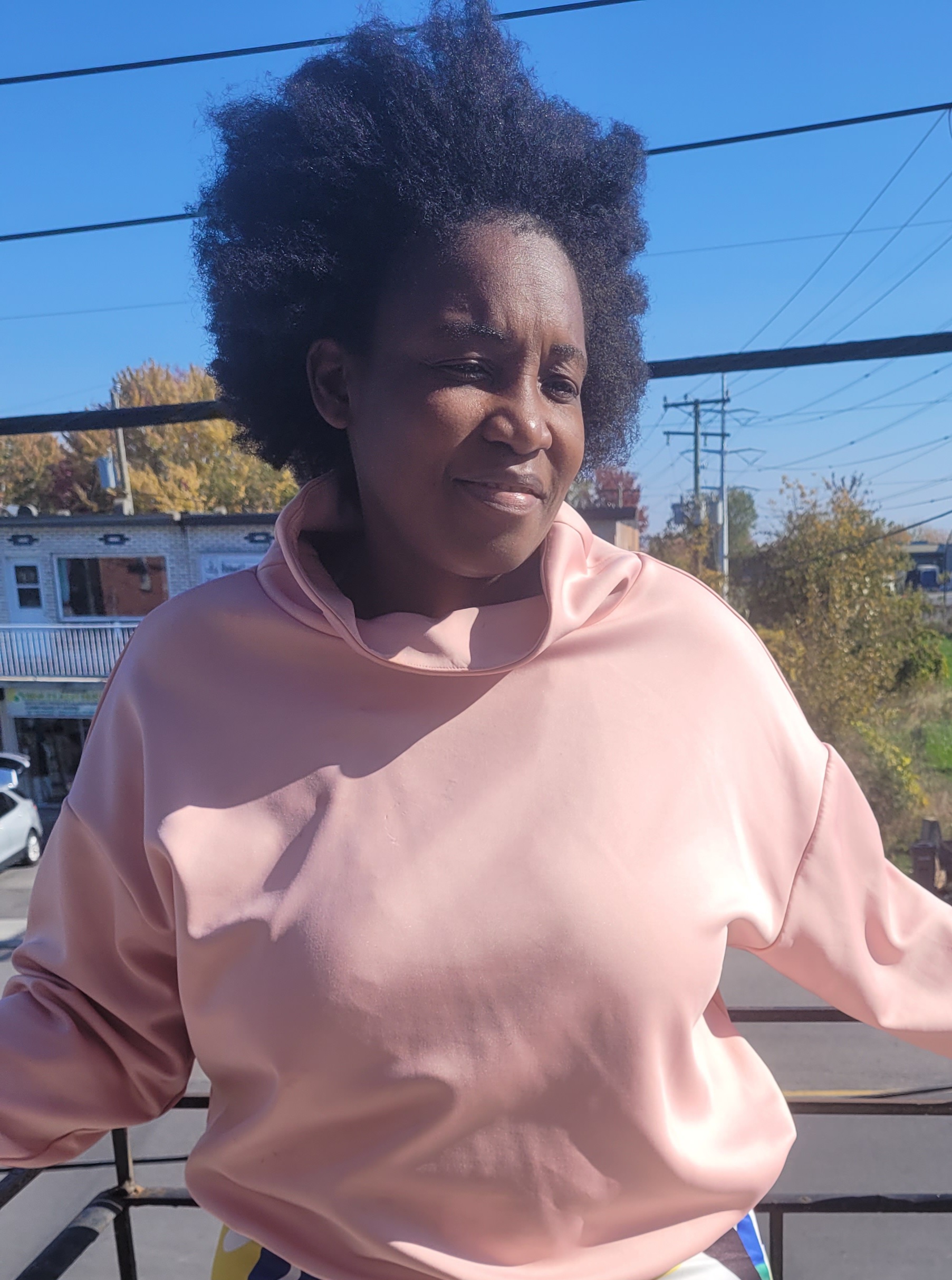
Benedicte Carole Ze
Benedicte Carole is a nursing student, former temporary worker on closed permit, activist and campaigner in several associations. She is a spokesperson for CTI (Crédits de Taxes sur les Intrants) and SSF (Solidarity Across Borders) in the “Un Statut pour toutes et tous” project, and a mobilization education officer for DTMF (Association pour les Droits des Travailleuses.rs de Maison et de Ferme). Benedicte Carole wants to help build a better world, free of racism, discrimination and human trafficking, where all people are equal, and where the value of humanity is superior to capitalism.
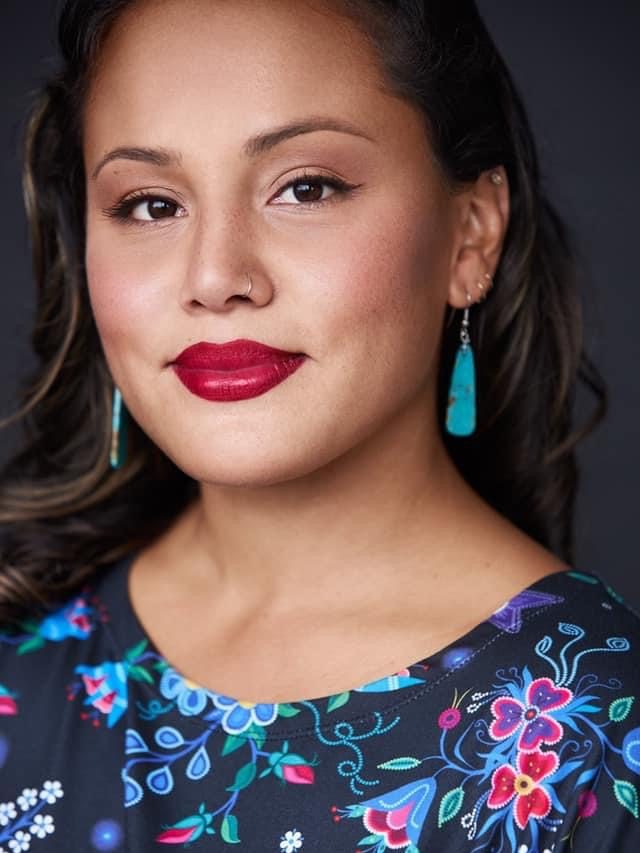
Brooke Rice
Shé:kon sewakwé:on, Katsi’tsarónkwas iontia’ts. Wakehnhehsí:io niwaki’tarò:ten tanon Kahnawà:ke nitewaké:non. Brooke Rice is a Snipe clan of the Kanien’kehá:ka nation, born and raised in Kahnawà:ke. She is an aunty, daughter, granddaughter, sister and relative. She is the Co-Founder of Tkà:nios- It Grows, a grassroots initiative birthed to rekindle our connection to self, land and others through Haudenosaunee land based learning and food sovereignty. Her dream is to create a sustainable Agri-food hub within the Kahnawá:ke community for the generations to come. Being an energetic Snipe, she loves hanging out with her family and friends, eating scrumptious foods, foraging, learning about sustainable energy, planting, seed saving and hunting with her Hunny.
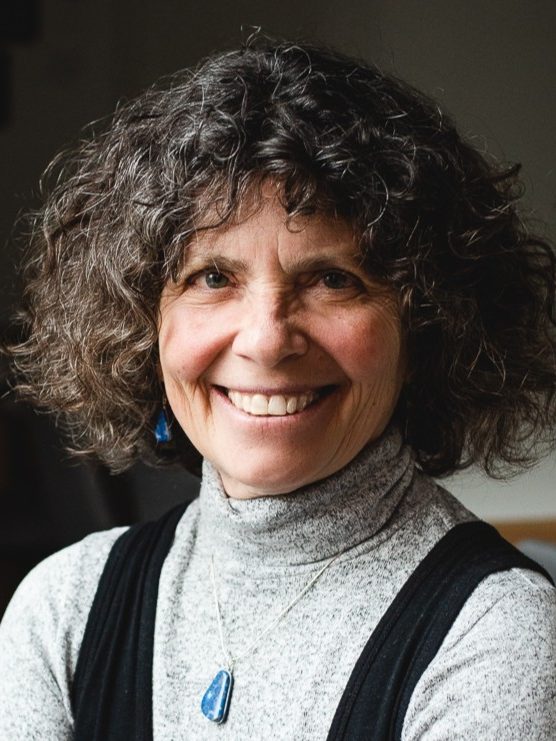
Debbie Field
Debbie Field is the Coordinator of the Coalition for Healthy School Food. The Coalition, its 340+ non profit organizations and networks and 140+ endorsers has successfully advocated for a National School Food Program and National School Food Policy for Canada, and expanded funding and policy commitments in all the provinces and territories. A longstanding community activist in a variety of social movements, Debbie believes passionately in the power of grassroots campaigning. Debbie is also an Associate Member, the Centre for Studies in Food Security, Toronto Metropolitan University, and Visiting Teaching Faculty in the MPP program McGill University Max Bell School of Public Policy.
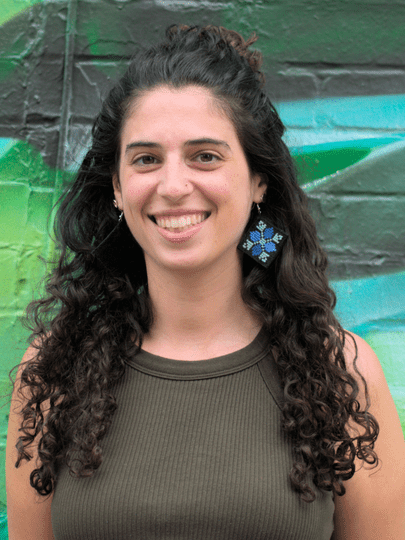
Gabrielle Nour Kacha
Gabrielle Nour Kacha, FSC’ Policy & Engagement Organizer, is a Lebanese-Palestinian who’s interest in food justice began when working in refugee camps. Since then, she’s farmed for several seasons, graduated with a MSc in Food Security, researched climate adaptation strategies for small-scale farmers with the International Centre of Tropical Agriculture (CIAT) and serves as subject matter expert on the Administrative Board of the NGO Social and Economic Action for Lebanon (SEAL). Her interests in the realm of food span from the social, to environmental and political. She is particularly motivated to fight for fair working and living conditions for farmers, for equitable access to food for consumers, for more agroforestry and agro-ecological methods of production, and for food sovereignty as a form of resistance.
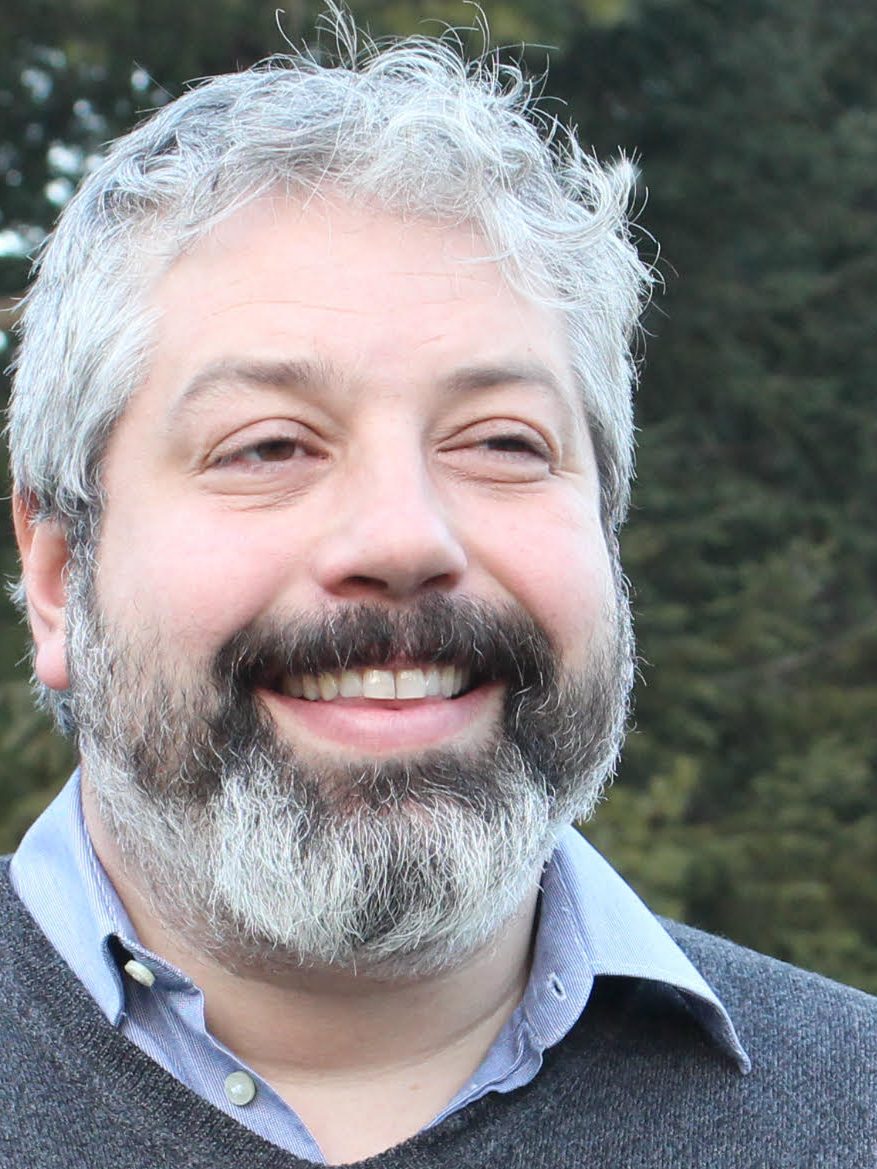
Jim Thomas
Jim Thomas is a researcher, writer and activist who tracks policy, governance and finance at the intersection of technologies and food systems. Previously a director for the ETC Group, Jim now consults and writes at www.scanthehorizon.org. Much of Jim’s three decades of work has been tracking and intervening in policy around genetic engineering , nanotechnology, climate tech, Agtech and recently Artificial Intelligence (AI). He has been active for 20 years in the UN Convention on Biological Development (where he is an appointed expert on Synthetic Biology) , has been convening a global ‘tech critics network’ and most recently has been leading a civil society process exploring how movements might push to defund agribusiness in the frame of reparations, ecological justice and towards agroecology. Jim is an AI Market and Power fellow with the European AI and Society Fund and an occasional slam poet.
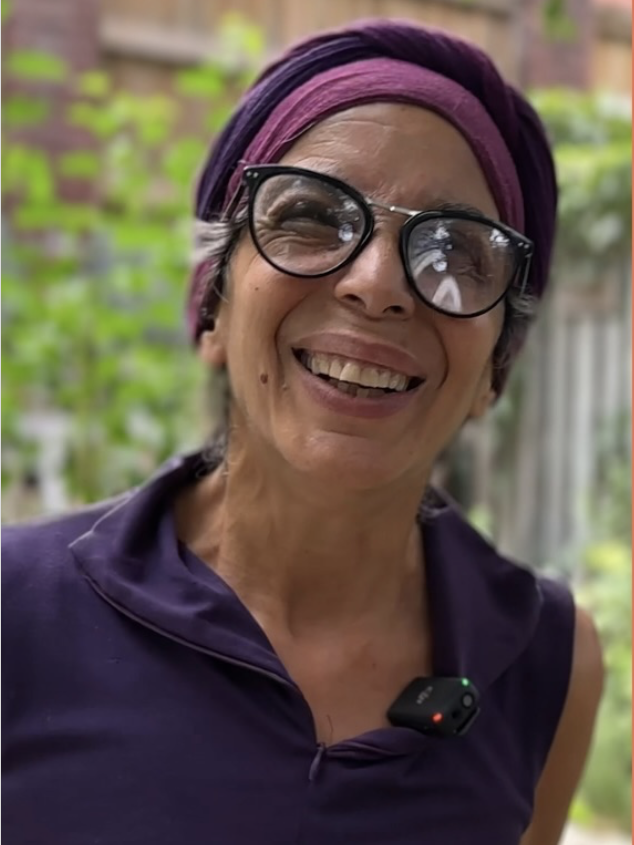
Josephine Grey
Josephine Grey is a human rights organizer engaged in community development for 35 years. She is also a widowed single parent mother and grandmother who lives in social housing. In 1986 she co-founded LIFT-Low Income Families Together, a resource NGO that incubates community-based projects. Josephine is a Founding Director of Food Share, The Income Security Advocacy Centre, the St. James Town Community Co-operative, Democracy Watch and Project Esperance, a 111 unit building for domestic abuse survivors. Her work as an advocate and organizer has taken her to the UN, World Social Forums and communities across 7 continents. Currently, she is on the board of the Local Food and Farm co-op (Ontario), and the Eco-just Food Network, and is leading the development of the OASIS food hub pilot project for St James Town.
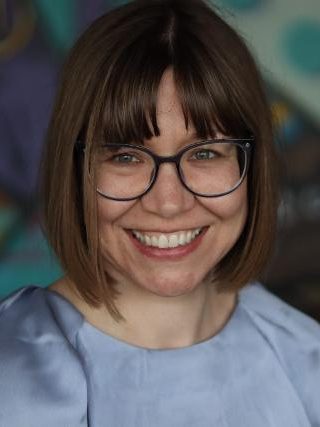
Kristen Lowitt
Kristen Lowitt is Assistant Professor in the School of Environmental Studies at Queen’s University. Her research goals are directed towards working with communities to build just and sustainable food systems in rural and coastal settings. Three main themes characterize her research program: a) the role of small-scale fisheries in sustainable food systems; b) food sovereignty and settler-Indigenous partnerships; and c) collective action and civil society participation in food systems governance. One of her current research projects is about the role of a basic income for a just transition in the food system; in collaboration with social movement partners, the project is looking at the economic security that is needed for small farmers, fishers, and Indigenous food providers as they transition to and scale-up sustainable practices.
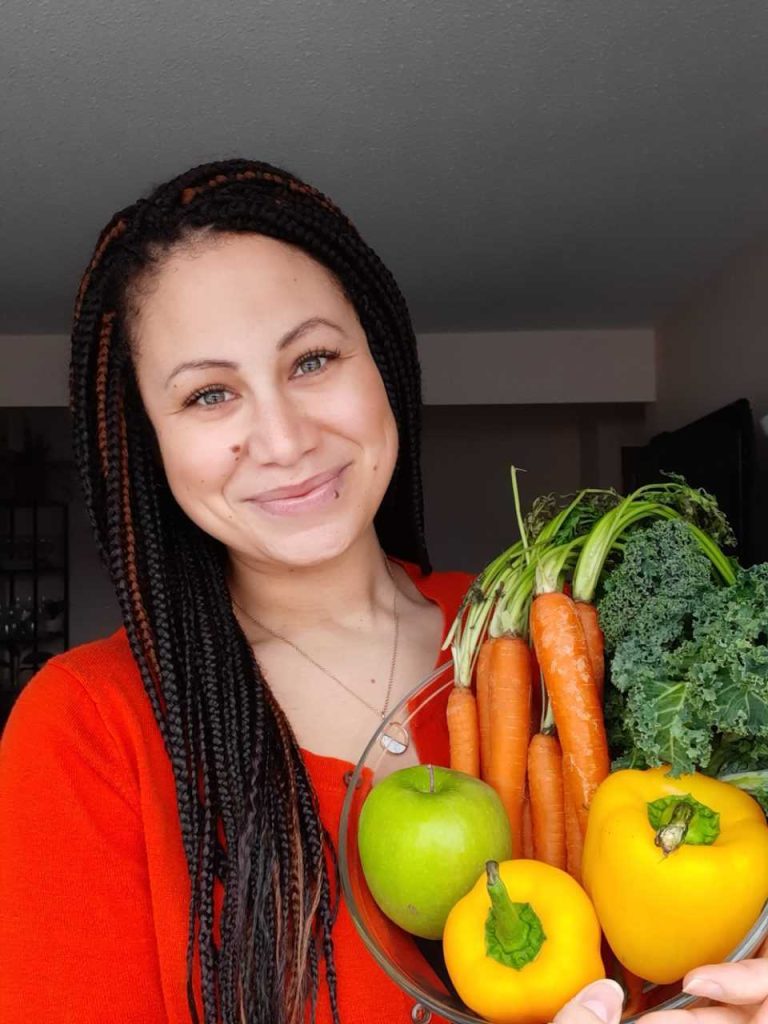
Marissa Alexander
Marissa is a registered dietitian who is passionate about anti-racism, food security, and equity. Living and working on the traditional and unceded territory of the Lheidli T’enneh, she has had the honour of working alongside 55 First Nations communities in northern BC. She is also privileged to be able to connect with many different peoples and communities through her anti-racism consulting work. In her very little spare time, she is working on her Master of Arts in Interdisciplinary Studies with a focus on equity and cultural studies. As someone who is thankful to be a part of many, often oppressed, communities she is always looking for opportunities to elevate voices and lived experiences. When she is not focused on social justice work, she likes to spend time with family, friends, and her dog Ru. You can often find her crafting or creating, and she tries to include humour in her work as much as possible.
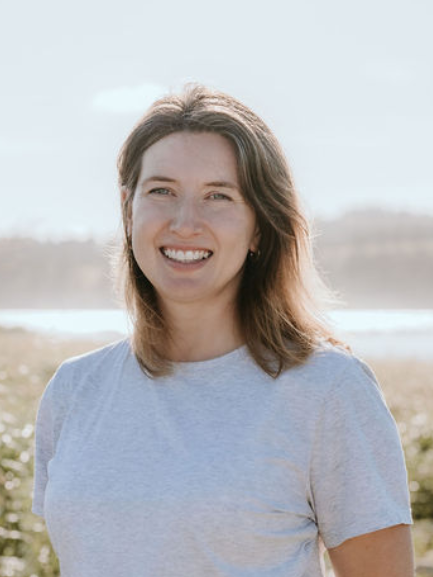
Phoebe Stephens
Phoebe Stephens is an Assistant Professor at Dalhousie University. Her research focuses on strategies to support sustainable food transitions. Phoebe’s work tends to focus on the role of finance in both hindering and fostering more positive social and environmental outcomes. Recent research projects include comparing food price changes in local versus mainstream food systems to shed light on the potential benefits of supporting more decentralized markets. Phoebe’s research has been published in academic journals including Agriculture and Human Values, Food Security and Canadian Food Studies. Phoebe completed her PhD in Social and Ecological Sustainability and MA in Global Governance from the University of Waterloo, and BA in International Development Studies from McGill University. For more information on her research, you can visit www.phoebegwenstephens.com
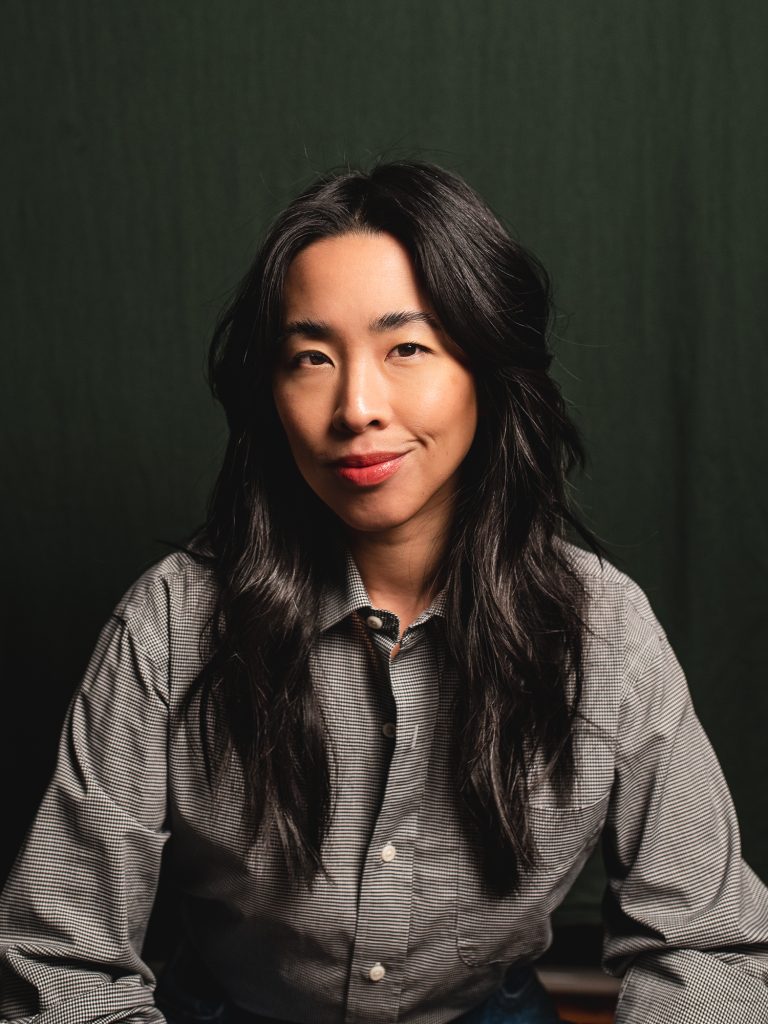
Rachel Cheng
Rachel is a community organizer, photographer, and writer working at the intersection of food and culture. She was born and raised in Toronto, but has lived in Tiohtià:ke/Montréal for over 16 years, working with various non-profits and community projects in food and the restaurant industry. Embedding antiracism and decolonial approaches in her work, she has consulted on campaigns, events, exhibits, and communications around food. Rachel works full-time with the Conseil du système alimentaire montréalais (Montreal food policy council) as a community mobilization officer
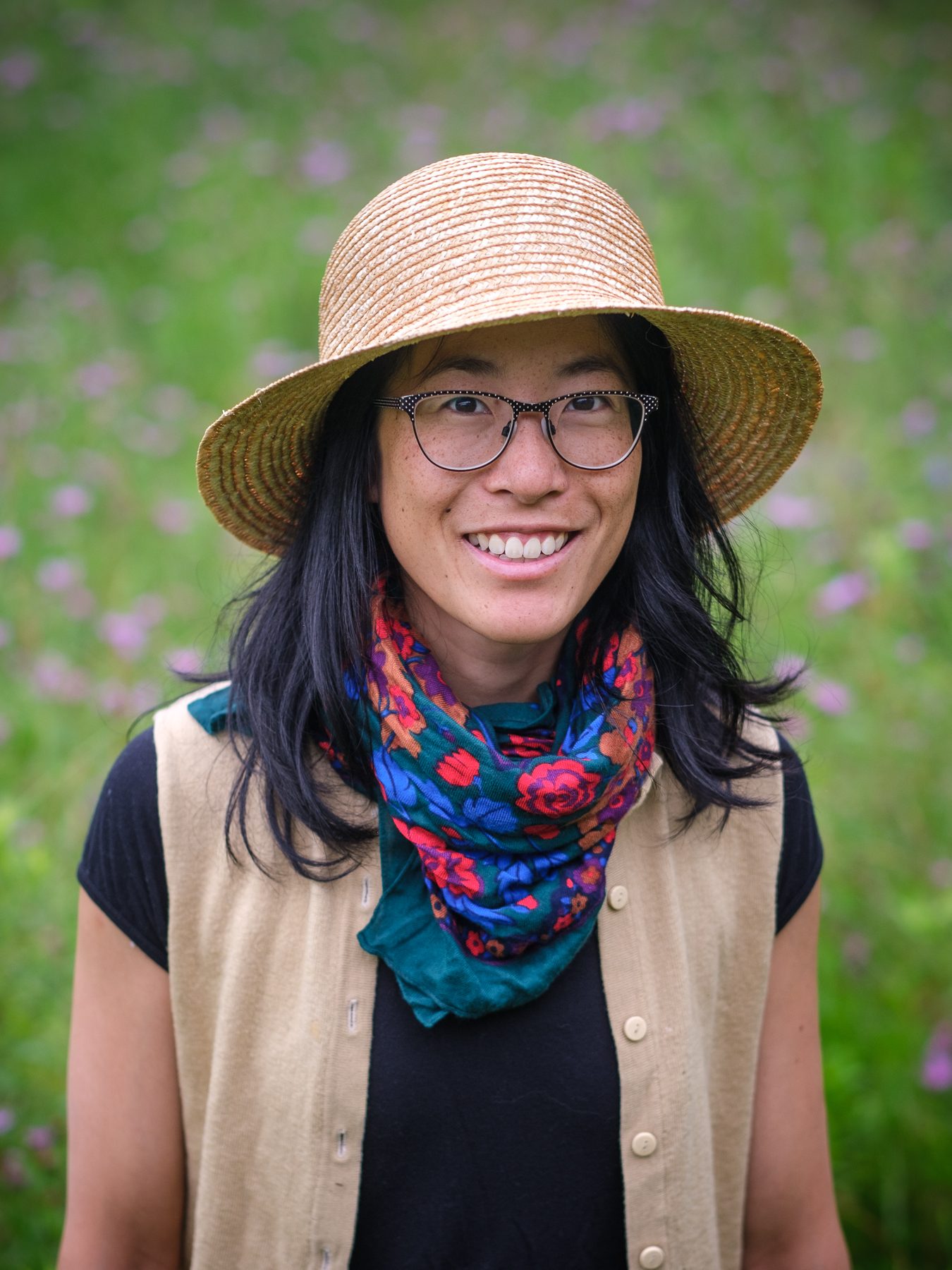
Stéphanie Wang
Stéphanie was born in Montreal to Cantonese parents who grew up in Madagascar. After studying the sociology of agriculture and working for 5 years with agricultural organizations affiliated with the international network of farmers La Via Campesina, she founded Le Rizen in 2016, a company specializing in the production and processing of organic Asian vegetables located in Frelighsburg. She is the author of the text Des fermes pérennes and co-author of the books Légumes asiatiques and Asian Vegetables. In 2023, she received the producer of the year award at the Lauriers de la Gastronomie québécoise.
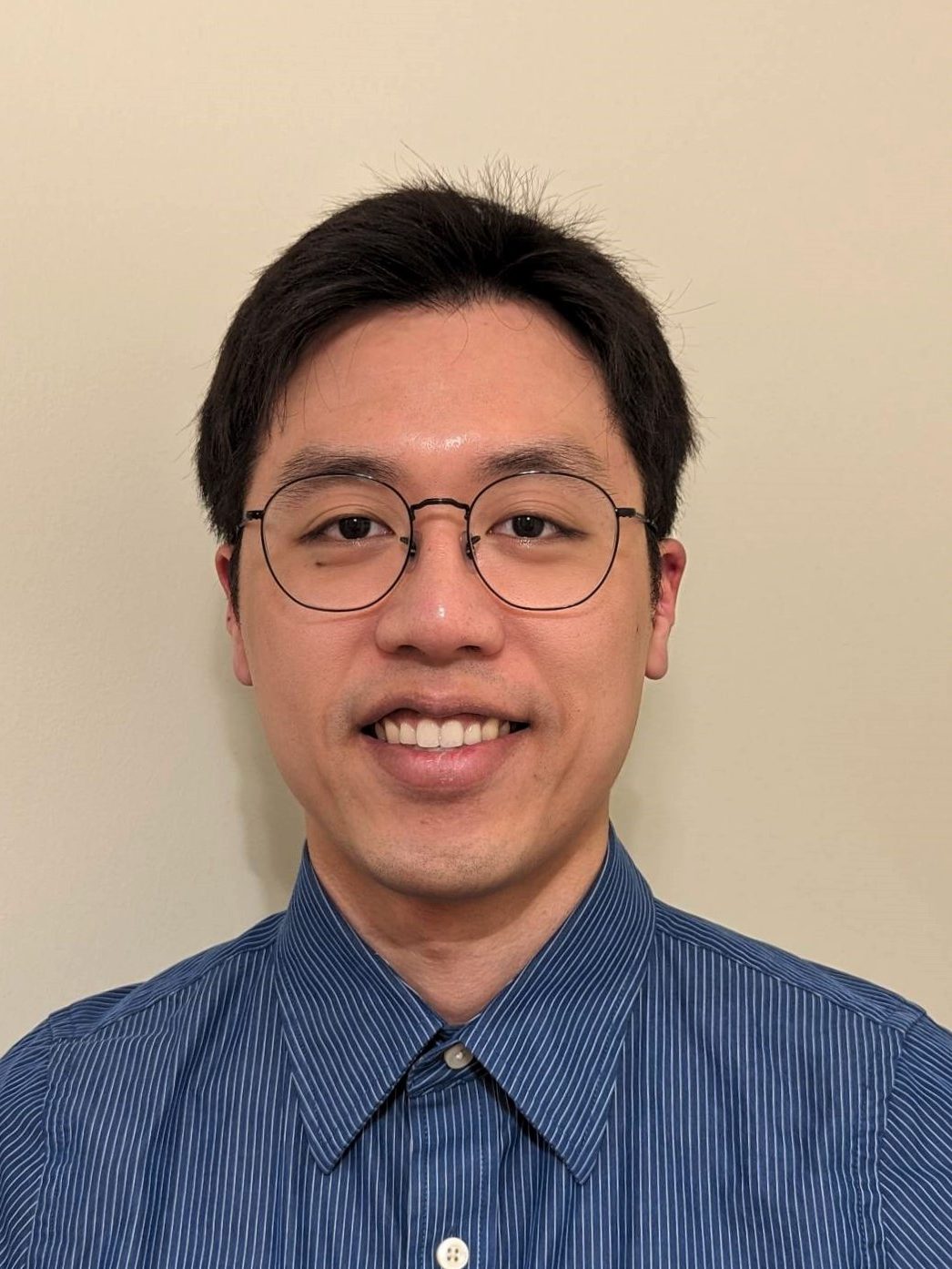
Tim Li
Tim Li is the research program coordinator of PROOF, a research program studying effective policy interventions for household food insecurity in Canada at the University of Toronto. PROOF’s work shines a spotlight on the size and seriousness of food insecurity in Canada, the inability for charitable assistance to resolve it, and how it can be remedied through public policies supporting adequate incomes. Over the past decade, PROOF has helped establish food insecurity as a serious public health problem, a marker of pervasive material deprivation, and a matter of public policy.
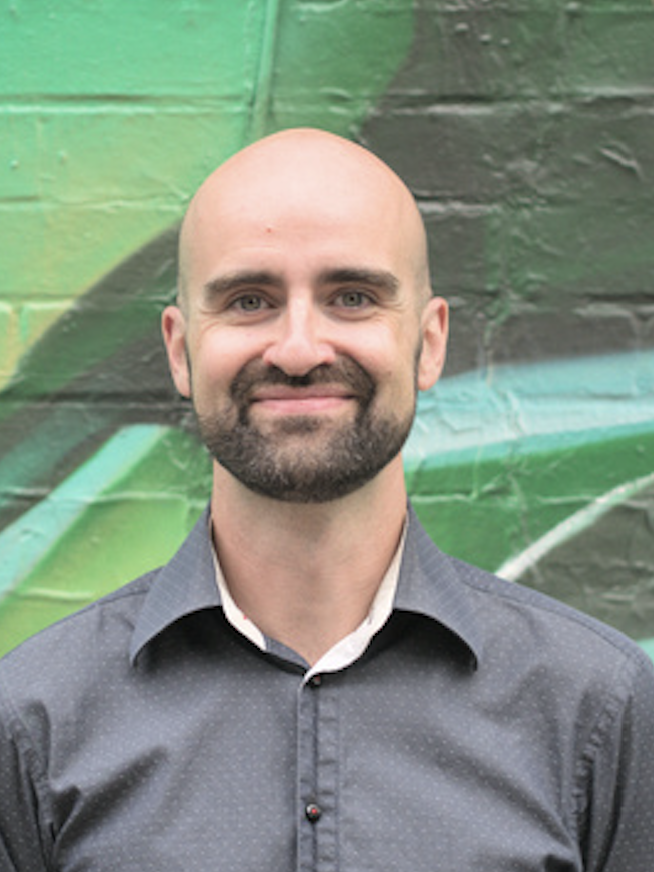
Wade Thorhaug
Wade, raised on a farm in southern Saskatchewan, has long been passionate about food systems. After earning a BSc from the University of Calgary and working abroad in education, he moved to Iqaluit, Nunavut, where he developed a deep appreciation for Indigenous food systems. As president and Executive Director of Qajuqturvik Community Food Centre, he expanded its reach and impact. Wade also co-founded the Nunavut Association of Non-Profit Organizations and as the current co-Executive Director at Food Secure Canada, advocates for food security, regional sovereignty, and dismantling colonial food systems.

Wendie Wilson
Wendie L. Wilson is a mother, educator, artist and writer. Born and raised in Kjipuktuk (Halifax), Wendie is a descendant of African Nova Scotians who have had history in the province for 400+ years. She has a keen interest in documenting the food history of this distinct cultural group and collecting the narratives connected to Canada’s oldest Black cuisine. Wendie is dedicated to elevating the profile of the community and sharing their culture with others. Utilizing her Masters in Africentric Leadership has allowed her to view situations through an African-centered lens. As a co-founder of the African Nova Scotian Freedom School, she is dedicated to contextualizing the history and culture of African Nova Scotians and making it accessible to those that it impacts, believing that education is the great equalizer.